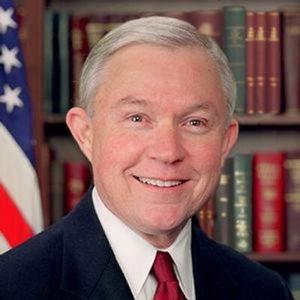That's what the Dutch do, and it's working.
Itâs not marijuana thatâs killing people, but marijuana prohibition.
A medical marijuana battle royale is raging in Oklahoma, New York will allow medical marijuana as an opioid replacement, and more.
A Tennessee sheriff's head narc is under investigation for stealing stuff at a drug bust, cops in Georgia and Vermont go to prison for stealing from the evidence locker, and more.
Oklahoma voters approved a medical marijuana initiative last month but a new battle is brewing, the British government says it will not block pill testing at clubs and festivals, and more.
Wine and liquor wholesalers endorse legalizing marijuana "like alcohol," a New York state report calls for marijuana legalization, Attorney General Sessions announces a crackdown on fentanyl, and more.
California regulators issue proposed draft regulations for the legal marijuana market, British police are "in effect" decriminalizing marijuana, the opioid crackdown is impacting chronic pain patients, and more.
The uproar in Oklahoma grows louder after the state health board messed with the medical marijuana initiative, Toronto's health board endorses drug decriminalization, and more.
BC nurses talk drug decriminalization, a Mexican minister talks drug legalization, House Republicans on a key committee once again block House votes on marijuana amendments, and more.
With Ohio beset by a massive public health crisis around opioid use and overdoses -- more than 4,000 Ohioans died of opioid overdoses in 2016 -- the Cleveland Plain Dealer sent travel editor Susan Glaser to Amsterdam in search of innovative approaches to the problem. While there, she rediscovered Holland's longstanding, radical, and highly-effective response to heroin addiction and properly asked whether it might be applied to good effect here.
The difference in drug-related death rates between the two countries is staggering. In the US, the drug overdose death rate is 245 per million, nearly twice the rate of its nearest competitor, Sweden, which came in second with 124 per million. But in Holland, the number is a vanishingly small 11 per million. In other words, Americans are more than 20 times more likely to die of drug overdoses than Dutch.
For Plain Dealer readers, the figures that really hit home are the number of state overdose deaths compared to Holland. Ohio, with just under 12 million people, saw 4,050 drug overdose deaths in 2016; the Netherlands, with 17 million people, saw only 235.
What's the difference? The Dutch government provides free heroin to several score hardcore heroin addicts and has been doing so for the past 20 years. Public health experts there say that in addition to lowering crime rates and improving the quality of life for users, the program is one reason overdose death rates there are so low. And the model could be applied here, said Amsterdam heroin clinic operator Ellen van den Hoogen.
"It's been an enormous success. I think it would work elsewhere," she told Glaser.
It already has. The Dutch program was modeled on a similar effort in Switzerland, which has also proven successful. Germany and Canada are among the several other countries with similar programs.
The Dutch approach is an example of the country's policy of gedogen (pragmatic tolerance), the same principle that led the Dutch to pioneer quasi-legal access to marijuana in the 1980s. It is also rooted in the notion that, for some, drug addiction is a chronic disorder, not a condition to be "cured," and one that can be treated with supervised drug use under clinical supervision. And the complete cessation of drug use need not be the ultimate goal; rather, the Dutch look for reductions in criminal activity and increases in the health and well-being of the drug users.
"It's not a program that is meant to help you stop," acknowledged van den Hoogen. "It keeps you addicted."
That's not a sentiment sits well with American moralizers, such as George W. Bush's drug czar, John Walters, whom Glaser consulted for the story. He suggested that providing addicts with drugs was immoral and not "real treatment," but he also resorted to lies about what the Dutch are doing.
He claimed the Dutch are "keeping people addicted for the purpose of controlling them" and that the Dutch have created "a colony of state-supported, locked-up addicts."
Actually, the Dutch are dealing with older, hardcore addicts who have repeatedly failed to quit after repeated stints in treatment, including methadone maintenance therapy, and they are neither "controlling them" or locking them up. Instead, the people in the program show up at the clinic twice a day, get their fix, then go about their business. This heroin-assisted treatment (HAT) allows those hardcore users to live less chaotic and more productive lives.
And heroin-assisted treatment is "real treatment," said Peter Blanken, a senior researcher with the Parnassia Addiction Research Centre in Rotterdam. He pointed out that one-quarter of program participants make a "complete recovery," including better health and quitting illegal drugs and excessive drinking. Many others continue to use heroin, but do so with better outcomes, he said.
There is also a real safety benefit to using state-supplied pharmaceutical heroin. It's potent, but it's a known quantity. Users face no risk of adulteration with more dangerous drugs, such as fentanyl, which is deeply implicated in the current US overdose crisis.
In the current political atmosphere in the United States, providing heroin to hardcore addicts is a hard sell indeed. Other, lesser, harm reduction interventions, such as needle exchanges remain controversial, and the country has yet to see its first officially sanctioned safe injection site. And drug decriminalization, which has led to a dramatic reduction in heroin addiction and overdose deaths in Portugal, remains off the table here, too. But with an annual drug overdose death toll of more than 50,000 people a year, it may time to start asking how many more Americans we are willing to sacrifice on the altar of moralistic drug prohibition.
back to top
Getting caught growing a few pot plants in Pennsylvania could lead to a criminal charge and a likely sentence of probation, but for a Lehigh Valley man, it was a death sentence. This past Monday, 51-year-old Gregory A. Longenecker was found dead under a bulldozer operated by a state Game Commission worker and carrying a state trooper hunting for two men spotted near a freshly-discovered marijuana grow.
According to the Pennsylvania State Police, the Game Commission bulldozer operator was using the machine to improve access to fields on game lands when he spotted a car well off the road in the brush and called police. Officers from nearby Bernville Borough were first on the scene and quickly found a plot containing ten growing marijuana plants.
The cops saw two men emerge from the underbrush and take off running, said Trooper David Boehm, a state police spokesman. "They were back there doing whatever they have to do to their plants," he said. "It was kind of carved out of the underbrush, which I've never seen underbrush that thick ever. It was crazy how thick it was."
The two men were Longenecker and his long-time friend David Brook Light, 54. Light was quickly taken into custody by the Bernville chief of police, but Longenecker eluded immediate capture. The state police arrived on the scene and ordered one of their helicopters to join the search. The chopper pilot spotted Longenecker in the brush but then lost him. Meanwhile, a state trooper and the bulldozer operator were roaring through the brush looking for him.
"An attempt to hail the other male was unsuccessful," Beohm said in a news release. "The helicopter lost sight of the male and was giving directions to the bulldozer of his last location. The Game Commission employee and a Trooper were on the bulldozer driving through the thick underbrush. The bulldozer stopped in the underbrush. The second male was located under the rear of the bulldozer deceased."
That's right: Confronted with a small-scale illicit marijuana grow on public land, the State Police deployed a helicopter and the on-scene bulldozer and managed to kill their target. But that's not how the cops tried to spin it.
First, Trooper Boehm denied that Longenecker died as a result of a police pursuit. "They were just trying to locate this guy with use of a helicopter," he explained.
Then he suggested that Longenecker may have died of natural causes. "The reason it's unclear if Longenecker was struck and killed by the bulldozer is that Longenecker, because of his age, could have had a heart attack while fleeing through the dense thicket," Boehm said.
But that attempted diversion was foiled on Tuesday when the preliminary autopsy report came out. That report found that Longenecker died of traumatic injuries after being run over by the bulldozer. A final ruling on the cause of death awaits toxicology tests, but it is clear that he died after being run over by the bulldozer.
The case has aroused the ire of the National Organization for the Reform of Marijuana Laws (NORML), which has denounced what it calls the excessive use of force by state law enforcement.
"This awful event could have and should have been prevented," said national NORML executive director Erik Altieri. "This tragedy is a direct result of our nation's draconic and failed criminalization of marijuana. Not only was the use of resources in this matter excessive and the tactics highly questionable, but more importantly a man lost his life over the act of growing a plant that is now legally regulated in a majority of US states. No matter your opinion on marijuana legalization, the penalty for growing cannabis should never be an extrajudicial death sentence."
"As a former prosecutor and practicing criminal defense attorney, it is inconceivable to me that a man lost his life during an investigation of a very small grow," said Pittsburgh NORML executive director Patrick Nightengale. "Had he been arrested, prosecuted and convicted, Pennsylvania's sentencing guidelines would have provided for a sentence of probation. The heavy-handed tactics employed cannot be justified by the seizure of ten plants. I do not understand why law enforcement couldn't simply wait. A vehicle was on scene and another individual was taken into custody. Rip the plants, run the plate and ask the arrestee what his friend's name is. How difficult is that?"
Medical marijuana is already legal in 31 states, including Pennsylvania, and legal marijuana for adults is already permitted in nine states and Washington, DC. A bill to legalize marijuana in the state failed to advance this year, even though 59% of state residents support freeing the weed.
"As an activist and cannabis lobbyist in Pennsylvania, I always use decorum and process to my advantage. There would seem to have been a total lack of both by law enforcement this past Monday outside of Bernville. By all accounts the death of an illicit marijuana grower being chased by a state bulldozer, under the direction of Pennsylvania State Troopers, was an unnecessary and reckless use of resources," said Jeff Riedy, executive director of Lehigh Valley NORML. "These horrible events only fuel the need for marijuana reform, including the right for personal use and home cultivation in our state, and across this country. Endless pursuit at all costs, leading to the death of a suspect, over a few marijuana plants is excessive, to say the least."
This article was produced by Drug Reporter, a project of the Independent Media Institute.
back to top
A medical marijuana battle royale is raging in Oklahoma, New York will allow medical marijuana as an opioid replacement, and more.
HawaiiHawaii Governor Vetoes Bill Allowing Medical Marijuana for Opioid Addiction. Gov. David Ige (D) has vetoed a bill that would have allowed medical marijuana treatment for opioid and substance abuse disorders. Senate Bill 2407 passed the legislature with large majorities in May, but Gov. Ige announced in June he planned to veto it. Now he has.
New York
New York Enacts Emergency Rules Allowing Medical Marijuana as Opioid Replacement. State regulators have moved to allow patients who would normally be prescribed opioids to use medical marijuana instead. "Medical marijuana has been shown to be an effective treatment for pain that may also reduce the chance of opioid dependence," New York State Health Commissioner Dr. Howard said. "Adding opioid replacement as a qualifying condition for medical marijuana offers providers another treatment option, which is a critical step in combatting the deadly opioid epidemic affecting people across the state."
Ohio
Ohio Medical Marijuana Patient Registry Delayed. The patient registry has been put on hold as regulators try to figure out when medical marijuana when actually be available to patients. The registry was supposed to go online last week. The state Department of Commerce has yet to set a date when it expects medical marijuana to be available.
Oklahoma
Oklahoma Governor Signs Strict Medical Marijuana Rules. Gov. Mary Fallin (R) on Wednesday signed rules regulating medical marijuana that include banning the sale of smokable marijuana at dispensaries and requiring a pharmacist at dispensaries. "These rules are the best place to start in developing a proper regulatory framework for medical marijuana, with the highest priority given to the health and safety of Oklahomans. They are also the quickest and most cost-efficient way to get the process actually started as required by the law passed by the people. I expect modifications could occur in the future. I know some citizens are not pleased with these actions," Fallon said in a statement.
DEA Says Oklahoma Pharmacists Dispensing Marijuana Would Violate Federal Law. Although Gov. Mary Fallin (R) on Wednesday signed into law regulations requiring that a pharmacist be present at medical marijuana dispensaries, the DEA's Special Agent in Charge in Oklahoma, Rich Salter, warned that the medical marijuana program as a whole violates federal law. Any pharmacist who dispensed an illegal drug would be at risk of losing his or her license, he added.
Oklahoma Medical Marijuana Groups Vow To Take Action In Last-Minute Regulation Changes. The Oklahoma Cannabis Trade Association and the Oklahomans for Health, the group that spearheaded the successful medical marijuana initiative, held a news conference Wednesday to decry regulations imposed by the state Board of Health and signed into law by Gov. Mary Fallin (R). "Those are not reasonable," said medical marijuana advocate Nora Sapp. "We the people spoke on July 26th. We didn't ask permission. We told them what we are going to do." The two groups said they would fight the regulations.
Oklahoma Advocates File Lawsuits Over Medical Marijuana Rules. Green the Vote, the people behind the successful June medical marijuana initiative, filed two lawsuits Friday against the state over its restrictive rules and regulations. "The lawsuit filed today is our endeavor to undo the wrongful acts of the Oklahoma Department of Health in adopting amendments to the regulations implementing State Initiative 788. It is our hope that this lawsuit will quickly resolve the improper regulations and allow Oklahoma citizens to exercise their rights to manage their own health care," the group announced in a news release.
Oklahoma Pressure Mounts for Special Session on Medical Marijuana. Amid growing outrage over the Board of Health's imposition of restrictive and controversial changes to State Question 788, approved last month by voters, legislators and others are demanding Gov. Mary Fallin (R) call a special session of the legislature to ensure the will of the voters is upheld. Among other changes, the Board banned the sale of smokable marijuana and required pharmacists to be present at dispensaries. "This is not what the voters voted for," said state Rep. Jason Lowe (D-Oklahoma City). "We must adhere to the will of the people. The governor's signing of the emergency rules adopted by the Oklahoma State Health Department is an affront to democracy, an insult to the law-abiding citizens that showed up to vote for this initiative."
Oklahoma Attorney General Advises Health Board to Change Restrictive Rules on Medical Marijuana. The office of the state attorney general is advising the Board of Health to revisit its restrictive rules for the state's new voter-approved medical marijuana law. On Monday, Attorney General Mike Hunter said his office would review legal challenges to the rules, and on Wednesday, the office announced it was calling on the board to convene a special meeting to amend the rules it passed last week. "The current rules contain provisions that are inconsistent with the plain language of State Question 788 and the State Board of Health acted outside of its authority when it voted to implement them," Attorney General Hunter said. "Although I didn't support State Question 788, the people of the state have spoken and I have a legal duty to honor the decision made by the electorate. My advice today is made pursuant to that responsibility as attorney general. Moving forward, I encourage all stakeholders to engage with the legislative working group looking at medical marijuana to ensure they have their concerns and recommendations heard and addressed by the legislature."
[For extensive information about the medical marijuana debate, presented in a neutral format, visit MedicalMarijuana.ProCon.org.]
back to top
A Tennessee sheriff's head narc is under investigation for stealing stuff at a drug bust, cops in Georgia and Vermont go to prison for stealing from the evidence locker, and more. Let's get to it:
In Murfreesboro, Tennessee,
a Rutherford County sheriff's lieutenant was placed under investigation Monday after being accused of stealing property seized during a drug bust. Lt. Jason Mathis, a 20-year veteran, is the head of the department's narcotics unit. He does not yet face any criminal charges, but an investigation is underway and he could be hit with a count of official misconduct. Dozens of criminal drug cases could be in jeopardy if he is charged.
In Bernice, Louisiana, a former Bernice police officer was arrested last Wednesday for unspecified misdeeds and allegedly threatening people who knew about them. Christopher Kevin Henry was fired after an investigation began in May and arrested by the narcotics unit after testing positive for methamphetamine last week.
In Burlington, Vermont, a former Royalton police officer was sentenced last Thursday to six months in prison after admitting stealing drugs from the department's evidence locker. John Breault confessed that he stole the drugs for a friend and for a woman with whom he had a relationship last year. He pleaded guilty in March to federal heroin distribution charges.
In Dalton, Georgia, a former Tunnel Hill police officer was sentenced last Thursday to five years in prison for stealing weapons and seized drug money from the police department. Scott Reneau had pleaded guilty to six counts each of theft and violation of office by a public official. Reneau went down after county officials ordered an audit into missing forfeiture money and weapons in 2016.
back to top
Oklahoma voters approved a medical marijuana initiative last month, but now a new battle is brewing; the British government says it will not block pill testing at clubs and festivals, and more.

The battle over medical marjuana is just beginning in Oklahoma. (Creative Commons)
Massachusetts US Attorney Says Enforcement of Federal Pot Laws Will Be Limited. US Attorney Andrew Lelling warned that he won't "immunize" state residents from federal law enforcement, but that he will focus on overproduction, targeted sales to minors, and organized crime. Lelling also said that fighting opioid addiction remains his highest priority.
Medical Marijuana
Oklahoma Governor Signs Strict Medical Marijuana Rules. Gov. Mary Fallin (R) on Wednesday signed rules regulating medical marijuana that include banning the sale of smokable marijuana at dispensaries and requiring a pharmacist at dispensaries. "These rules are the best place to start in developing a proper regulatory framework for medical marijuana, with the highest priority given to the health and safety of Oklahomans. They are also the quickest and most cost-efficient way to get the process actually started as required by the law passed by the people. I expect modifications could occur in the future. I know some citizens are not pleased with these actions," Fallon said in a statement.
DEA Says Oklahoma Pharmacists Dispensing Marijuana Would Violate Federal Law. Although Gov. Mary Fallin (R) on Wednesday signed into law regulations requiring that a pharmacist be present at medical marijuana dispensaries, the DEA's Special Agent in Charge in Oklahoma, Rich Salter, warned that the medical marijuana program as a whole violates federal law. Any pharmacist who dispensed an illegal drug would be at risk of losing his or her license, he added.
Oklahoma Medical Marijuana Groups Vow To Take Action In Last-Minute Regulation Changes. The Oklahoma Cannabis Trade Association and the Oklahomans for Health, the group that spearheaded the successful medical marijuana initiative, held a news conference Wednesday to decry regulations imposed by the state Board of Health and signed into law by Gov. Mary Fallin (R). "Those are not reasonable," said medical marijuana advocate Nora Sapp. "We the people spoke on July 26th. We didn't ask permission. We told them what we are going to do." The two groups said they would fight the regulations.
International
British Government Says It Won't Block Pill Testing at Festivals. The British government has said it "would not stand in the way" of pill testing at music festivals and clubs. Policing minister Nick Hurd said that the Home Office would defer to the judgment of local officials in allowing festivals and live music venues to allow illicit drugs to be evaluated for safety. "The fact that chief constables in Avon, Cumbria, Somerset, and Hampshire have stepped forward and said… we do want to cooperate with this, sends a strong signal."
back to top
Wine and liquor wholesalers endorse legalizing marijuana "like alcohol," a New York state report calls for marijuana legalization, Attorney General Sessions announces a crackdown on fentanyl, and more.

Jeff Sessions continues to wage last century's drug war as he tries a crackdown on fentanyl. (senate.gov)
Wine and Liquor Wholesalers Endorses Marijuana Legalization If Regulated Like Alcohol. The Wine & Spirits Wholesalers of America (WSWA) trade group is is urging Congress to pass legislation that adopts a number of regulatory components for cannabis that are similar to those for beverage alcohol. They include a minimum purchase age of 21; driving under the influence standards; licensing for producers, processors, distributors, and retailers; policies to prevent vertical monopoly/integration; hours and days of sale in parity with alcohol; tax collection and enforcement mechanisms; labeling requirements; advertising restrictions; product tracking; restrictions on common carrier delivery; and measures to prevent diversion of cannabis to other states.
New York Governor Releases Report Recommending New York State Legalize Marijuana for Adult Use. Governor Andrew Cuomo (D) and the New York State Department of Health released an impact assessment of marijuana legalization. The report concludes that the benefits of taxing and regulating marijuana far outweigh any potential negative consequences. The study was commissioned by Governor Cuomo and announced in his address on the executive budget proposal.
Medical Marijuana
Hawaii Governor Vetoes Bill Allowing Medical Marijuana for Opioid Addiction. Gov. David Ige (D) has vetoed a bill that would have allowed medical marijuana treatment for opioid and substance abuse disorders. Senate Bill 2407 passed the legislature with large majorities in May, but Gov. Ige announced in June he planned to veto it. Now he has.
New York Enacts Emergency Rules Allowing Medical Marijuana as Opioid Replacement. State regulators have moved to allow patients who would normally be prescribed opioids to use medical marijuana instead. "Medical marijuana has been shown to be an effective treatment for pain that may also reduce the chance of opioid dependence," New York State Health Commissioner Dr. Howard said. "Adding opioid replacement as a qualifying condition for medical marijuana offers providers another treatment option, which is a critical step in combatting the deadly opioid epidemic affecting people across the state."
Oklahoma Advocates File Lawsuits Over Medical Marijuana Rules. Green the Vote, the people behind the successful June medical marijuana initiative, filed two lawsuits Friday against the state over its restrictive rules and regulations. "The lawsuit filed today is our endeavor to undo the wrongful acts of the Oklahoma Department of Health in adopting amendments to the regulations implementing State Initiative 788. It is our hope that this lawsuit will quickly resolve the improper regulations and allow Oklahoma citizens to exercise their rights to manage their own health care," the group announced in a news release.
Heroin and Prescription Opioids
Justice Department Will Target Ten Areas in Crackdown on Fentanyl. In a move right out of last century's war on drugs playbook, Attorney General Jeff Sessions announced Thursday that he has ordered federal prosecutors in ten areas to bring federal drug dealing charges against anyone suspected of dealing fentanyl, no matter how small the quantity. An additional assistant US attorney will also be sent to each of the designated areas in New Hampshire, Ohio, Tennessee, Kentucky, West Virginia, Maine, and California.
back to top
California regulators issue proposed draft regulations for the legal marijuana market, British police are "in effect" decriminalizing marijuana, the opioid crackdown is impacting chronic pain patients, and more.
Marijuana Policy
California Legal Marijuana Draft Regulations Unveiled. State regulators last Friday unveiled their much-anticipated draft of permanent regulations for the state's legal marijuana industry. Under the proposed regulations, pot shops would be able to deliver marijuana anywhere in the state, medical marijuana patients will likely be able to buy edibles more potent than currently permitted, but rules for advertising products could become more strict. The public now has 45 days to weigh in on the draft rules, either in writing or at one of 10 hearings to be held throughout the state.
Heroin and Prescription Opioids
Crackdown on Opioid Prescriptions Risks Leaving Pain Patients Out of Luck. With the country in the midst of a battle against opioid addiction and overdoses, policies to curtail the use of opioids are impacting chronic pain patients and making their lives more difficult. New prescribing guidelines from the Centers for Disease Control, new state laws, state medical board sanctions, and policy changes by managed-care and prescription plans have all contributed to what pain patients call "changes have ignored the treatment of their pain and have made it harder for many to find care."
Drug Testing
Minnesota Appeals Court Rules That People With Drug Convictions Can't Be Subjected to Drug Tests Forever to Receive Welfare Benefits. The state Court of Appeals ruled Monday that people with previous drug convictions cannot be permanently required to undergo drug testing as a condition of receiving welfare benefits. The ruling came in the case of a woman convicted of drug possession in 1997 who refused to take a drug test in 2016 and lost her benefits. Under a 1997 state law, people convicted of drug offenses are ineligible for benefits for five years after their sentences are over (unless they've completed drug treatment) and are subject to random drug tests in perpetuity. "Granting effect to the [Department of Human Services'] current interpretation of the statute would require persons receiving MSA or general-assistance benefits to undergo chemical testing indefinitely, even if decades have passed since the completion of a court-ordered sentence," Judge Roger Klaphake wrote on his opinion overturning a denial of benefits to the woman. "Those who, like appellant, have long since completed their court-ordered sentences and five-year period of ineligibility are not ''[p]ersons subject to the limitations of this subdivision' and are not required to undergo chemical testing for receipt of benefits under chapter 256D," he wrote on behalf of a divided three-judge panel.
International
Brazil Marijuana Legalization Bill Filed. The opposition Workers' /Party has filed a bill that would legalize marijuana in South America's largest and most populous country. The move comes a year after Supreme Court Justice Roberto Barroso called on lawmakers to legalize marijuana as a means of reducing gang violence. But given that the Workers' Party is the minority, this bill is unlikely to move this year.
British Police "In Effect" Decriminalizing Marijuana. British police are effectively decriminalizing marijuana by not bothering to arrest pot smokers, British arrest statistics show. Marijuana arrests have dropped 19% since 2015 and so have warnings, which declined 34% in the same period. "The fall in prosecutions and cautions for cannabis possession is a welcome trend and a victory for common sense," said Liberal Democrat MP David Lamb. "The 'war on cannabis' unfairly stigmatizes and criminalizes young people who are doing no harm to others, while tying up police resources which should be better used tackling harmful crimes. However, this issue should not be left to individual police forces. We cannot tolerate a postcode lottery where cannabis users may or may not be prosecuted depending on where they live. The government must bring forward proposals for a regulated cannabis market in the interests of public health, with strict controls on price and potency, and give parliament a free vote."
back to top
The uproar in Oklahoma grows louder after the state health board messes with the medical marijuana initiative, Toronto's health board endorses drug decriminalization, and more.

A battle is brewing in Oklahoma after the state health board messes with the voter-approved medical marijuana initiative. (DPA)
Oklahoma Pressure Mounts for Special Session on Medical Marijuana. Amid growing outrage over the Board of Health's imposition of restrictive and controversial changes to State Question 788, approved last month by voters, legislators and others are demanding Gov. Mary Fallin (R) call a special session of the legislature to ensure the will of the voters is upheld. Among other changes, the Board banned the sale of smokable marijuana and required pharmacists to be present at dispensaries. "This is not what the voters voted for," said state Rep. Jason Lowe (D-Oklahoma City). "We must adhere to the will of the people. The governor's signing of the emergency rules adopted by the Oklahoma State Health Department is an affront to democracy, an insult to the law-abiding citizens that showed up to vote for this initiative."
Drug Testing
Massachusetts High Court Holds Judges Can Require Drug Users to Remain Drug-Free. The state's Supreme Judicial Court ruled Monday that a judge can require a drug user to stay drug-free as a condition of probation. The case involved Julie Eldred, who was on probation for a larceny charge when she was jailed for failing a drug test. Her attorney argued that her relapse was a symptom of her disease of addiction and that it was unconstitutional to punish someone for a medical condition. But the court disagreed: "In appropriate circumstances, a judge may order a defendant who is addicted to drugs to remain drug-free as a condition of probation, and that a defendant may be found to be in violation of his or her probation by subsequently testing positive for an illegal drug."
International
Toronto Public Health Board Calls for Drug Decriminalization. The health board in Canada's largest city has called on the federal government to decriminalize all drugs. The board voted unanimously Monday to endorse the recommendation from the city's top health officer, Dr. Eileen de Villa. "The potential harms associated with any of these drugs is worsened when people are pushed into a position where they have to produce, obtain and consume those drugs illegally, so that's what we're trying to address," de Villa said, with a call for a "public health approach" focused on treatment and harm minimization rather police, courts and jail. Officials in Vancouver have also called for drug decriminalization, but the federal government of Prime Minister Justin Trudeau hasn't shown any appetite for it.
back to top
BC nurses talk drug decriminalization, a Mexican minister talks drug legalization, House Republicans on a key committee once again block House votes on marijuana amendments, and more.

Mexico's incoming government is talking about legalizing drugs. (Creative Commons)
House Rules Committee Once Again Blocks Marijuana Reform Votes. The Rules Committee, chaired by Rep. Pete Sessions (R-TX), has once again blocked marijuana reform amendments from being voted on by the full House. On Monday night, the committee blocked votes on two amendments, bringing the total of amendments it has blocked to 36 in this session.
Arizona Federal Prosecutors Now Charging Marijuana Smugglers With Illegal Entry, Too. Federal prosecutors in Arizona have announced a policy shift in which they will now charge the hundreds of people caught each year smuggling marijuana across the border with immigration violations as well as drug charges. Under the new policy, prosecutors will now seek six-month sentences for misdemeanor illegal entry as well as six-month sentences for marijuana violations. While the sentences would run concurrently, a conviction for crossing the border illegally could be used as a sentencing enhancement in future convictions.
Medical Marijuana
Ohio Medical Marijuana Patient Registry Delayed. The patient registry has been put on hold as regulators try to figure out when medical marijuana when actually be available to patients. The registry was supposed to go online last week. The state Department of Commerce has yet to set a date when it expects medical marijuana to be available.
Oklahoma Attorney General Advises Health Board to Change Restrictive Rules on Medical Marijuana. The office of the state attorney general is advising the Board of Health to revisit its restrictive rules for the state's new voter-approved medical marijuana law. On Monday, Attorney General Mike Hunter said his office would review legal challenges to the rules, and on Wednesday, the office announced it was calling on the board to convene a special meeting to amend the rules it passed last week. "The current rules contain provisions that are inconsistent with the plain language of State Question 788 and the State Board of Health acted outside of its authority when it voted to implement them," Attorney General Hunter said. "Although I didn't support State Question 788, the people of the state have spoken and I have a legal duty to honor the decision made by the electorate. My advice today is made pursuant to that responsibility as attorney general. Moving forward, I encourage all stakeholders to engage with the legislative working group looking at medical marijuana to ensure they have their concerns and recommendations heard and addressed by the legislature."
International
British Columbia Nurses Join Call for Canada Drug Decriminalization. The BC Nurses Union said in a press release Tuesday that the federal government should declare the opioid crisis a national public health emergency and that the possession of personal amounts of opioids should be decriminalized. The move comes just days after the Toronto board of health made a similar call.
Mexico Will Consider Drug Legalization, Interior Minister Says. Interior Minister Olga Sanchez Cordero said Tuesday that that incoming President Andres Manuel Lopez Obrador (AMLO) had given her "carte blanche" to consider legalizing drugs. "On the subject of decriminalizing drugs, Andres Manuel told me, and I quote: 'Carte blanche. Whatever is necessary to restore peace in this country. Let's open up the debate,'" Sanchez Cordero said. She pointed to the bloody violence of the past decade: "What no one can deny with hard data is that, at least in the past ten years, the Mexican government has been incapable of stopping violence and responding to it with institutional mechanisms," she said.
back to top








